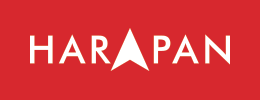The COVID-19 pandemic exposed many vulnerabilities in the national education system. The most obvious one being the gap between income groups which have led to unequal educational opportunities stemming from schools being closed during MCO.
In this post-pandemic age, the focus of education reform is to bridge the gap between groups, improve education quality, and champion the welfare of teachers. These are the primary objectives as well as facilitating Higher Education as a pathway for a better future for the children of Malaysia.
PRIMARY EDUCATION
Free Breakfast – UNICEF estimates that nutritional problems among children doubled during the COVID-19 pandemic. HARAPAN will increase the allocated funds for the current free breakfast program. This is an important step to ensure that more than 500,000 recipients will be provided with the nutritions needed for every single day in their schooling session.
Post-Pandemic, Bringing Down the Lost Generation Rate – To narrow the educational gap that was caused by school closures during the COVID-19 pandemic, special allocations will be set aside to assess students’ basic competencies in Reading, Writing, and Arithmetic throughout the nation. Simultaneously, special allowances will be allocated to support teachers who will implement appropriate recovery plans for children who have now become part of the lost generation due to being trapped in poverty and living in remote areas. This will help reduce the number of those who are being left behind by the system.
Tackling Dilapidated Schools – The infrastructure gap between Peninsular Malaysia and Sabah and Sarawak shows that the educational gap has never been prioritised despite Malaysia achieving more than 60 years of independence. To ensure that high quality education can be provided to all Malaysian children including those in Sabah & Sarawak, renovating dilapidated schools will form the core of the Education Reform. This includes increasing the expenditure of constructing new buildings through modular construction and IBS while also aiming for more efficient school building maintenance.
Reduce Teachers’ Workload – To ensure that high quality education can be efficiently relayed in the classroom, focus must be given towards developing a supportive environment for teachers. Teachers can no longer be burdened with excessive bureaucracy to help them focus on their core responsibility of teaching and learning process in classrooms. In the short term, overlaps between procedures and existing reports will be streamlined. In the long term, funds will be allocated to hire teaching assistants who can help teachers carry out administrative duties.
Cross-Cultural Programmes – As a multiracial and multicultural nation, Malaysia must maintain this identity and uniqueness so that it may be inherited by future generations. To encourage unity at an earlier stage for the younger generation, cross-cultural programmes will be carried out for national schools, vernacular schools, and religious schools.
Fair Allocation – To help each and every group within the Malaysian society which has differing needs, fair allocation of funds will be provided to all schools including Sekolah Kebangsaan, Sekolah Jenis Kebangsaan Cina (SJKC), Sekolah Jenis Kebangsaan Tamil (SJKT), Sekolah Berasrama Penuh, Maktab Rendah Sains MARA, Sekolah Agama Bantuan Kerajaan, Sekolah Mubaligh, Sekolah Tahfiz, Sekolah Agama Rakyat & Sekolah Agama Persendirian, registered Sekolah Pondok, Sekolah Menengah Jenis Kebangsaan, and Sekolah Menengah Persendirian Cina (SMPC).
Ethnic Languages – Expanding the capabilities of teaching ethnic languages at Institutes of Teacher Education (IPGs) to preserve our heritage and ensure that more teachers are trained in line with efforts to cultivate a more cultured generation.
Recognising UEC– Continuing efforts to recognise UEC as a general requirement for Public Higher Education Institutes (IPTA) with the condition that applicants possess at least a credit in Bahasa Melayu for their SPM results. To fulfil this objective, the UEC will be accepted similarly to the existing general requirements for IPTA enrollment.
HIGHER EDUCATION
Abolish UUCA (AUKU) – To monitor the continuous efforts of Education Reform, priority must be given to granting autonomy for Universities & Institutes of Higher Learning. Therefore, Universities and University Colleges Act (UUCA) will be abolished and students, lecturers, and alumni will be recognised as the true stakeholders.
Targeted PTPTN Loans Forgiveness – To overcome the issue of unreasonable study loans among students including PTPTN debts, a targeted Loan Forgiveness Program for those living in poverty and students who come from B40 households will be introduced. The PTPTN repayment schedule will also be adjusted based on the income of fresh graduates beginning from RM4,000 with increasing percentages based on salary.
B40 Scholarships – Simultaneously, more scholarships will be introduced for the B40 group to help them reduce dependency on PTPTN loans.More Admission Opportunities – Ensuring more high-achieving SPM & STPM graduates are provided the opportunity to continue their studies in IPTAs. This will ensure that the opportunities will be given to academically-inclined students who truly deserve them.
